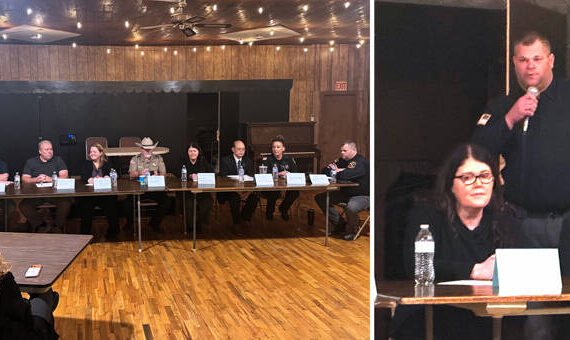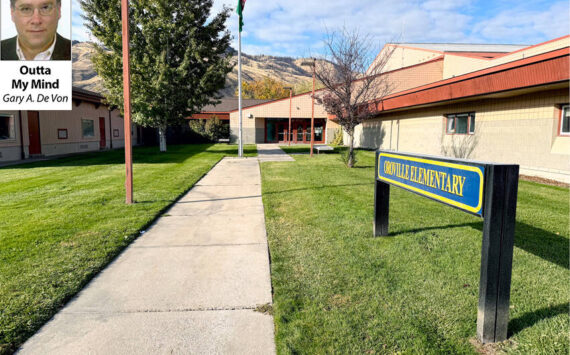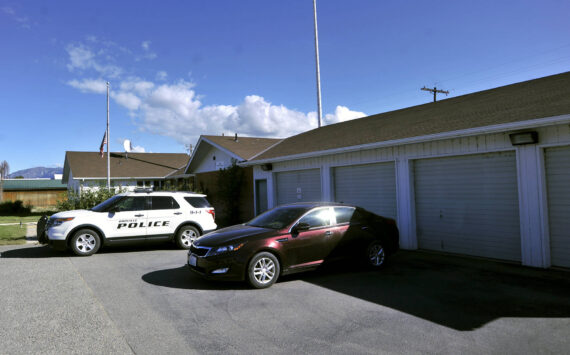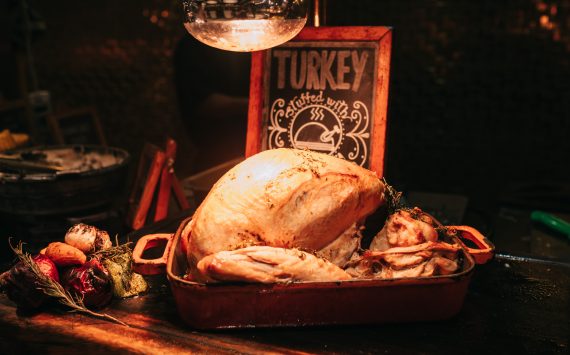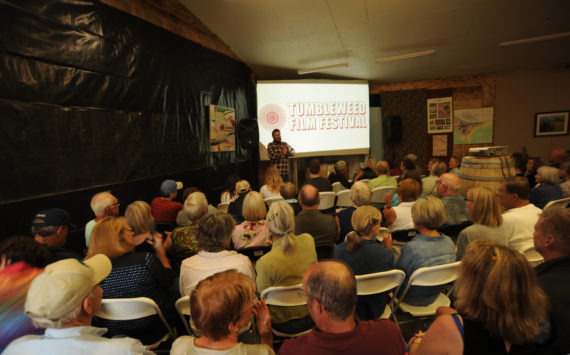 Seriously, the next “Pendleton?” No, not the rodeo, but the manufacture of fine wool clothing, like shirts, pants and coats. If the local chapter of the North American Wool Co-op has their way it will – at least the area would become known for their signature products, made from locally produced fibers and woven at a locally owned and operated mill.
Seriously, the next “Pendleton?” No, not the rodeo, but the manufacture of fine wool clothing, like shirts, pants and coats. If the local chapter of the North American Wool Co-op has their way it will – at least the area would become known for their signature products, made from locally produced fibers and woven at a locally owned and operated mill.
Vicki Eberhart and the group have big plans for a fiber mill that would not only turn wool from sheep into finished products, it would do the same for alpaca and llamas which are camelids (we just learned the term, although we knew they were camel cousins), as well as goats, which give us mohair and cashmere; rabbits, angora; musk ox, qivut and of course silk worms. On top of that she and her fellow NAWC members, Scott Turnbull and Susan Facer, told the Oroville Chamber last week they could also make yarn and textiles from hemp, flax, bamboo and cotton if all goes according to plan. All milled in Oroville and to the benefit of local farmers and others in Washington.
It sounds exciting – Eberhart said the co-op already has a contract to do U.S. Military berets – part of the U.S.’s effort to buy American. Not a bad idea, considering all the flack they got when people found out the original new lids were originally purchased from China.
We wish the group all the luck in the world and hope their plan to start be in production by May comes to fruition. Our farmers can use all the help they can get and greater Oroville could use the jobs. We’re also glad to see a historic, if a little down on its luck, apple warehouse is going to be used for this purpose. Having one more empty and idle building that could be put to productive use is great.
From the group’s Powerpoint presentation:
Started in 2013;
- Non-profit, set up to aid farmers in finding ways to resurrect an industry of great importance;
- Standardize fiber production with both objective and subjective testing;
- Assist farmers in selecting fibers for best products and suitable milling; and
- Create a wool pool for cost reduction in like kind fibers pre-sorted by certified wool graders.
The purpose of the NAWC, the group says, is to unite fiber farmers and wool producers in the USA and assist in set up of independent for profit community mills across America using locally farmed fibers, to create the highest quality local yarns and products for the U.S. and export markets.
The local chapter wants to create jobs while creating an industry, that follows a “corporate responsibility model” which shows that government and society and business can co-exist while being kind to the environment, according to Eberhart.
Clyde Andrews, Oroville Chamber President, said he hopes that the mill’s production can become an “iconic” product for the area – a signature product.
The group has already contacted the Pendleton Company and they’d be interested in taking fiber from any backlog that develops. They’ve also sought advice from other mills in Ohio, which offered encouragement and advice.
We’ve seen startups before, but have a good feeling about these people. They didn’t just jump into things, they’ve been planning this since last year, getting their ducks in a row and working on a business plan. They deserve support and encouragement to carry through with their ambitious plan. We say, good luck and Godspeed.
